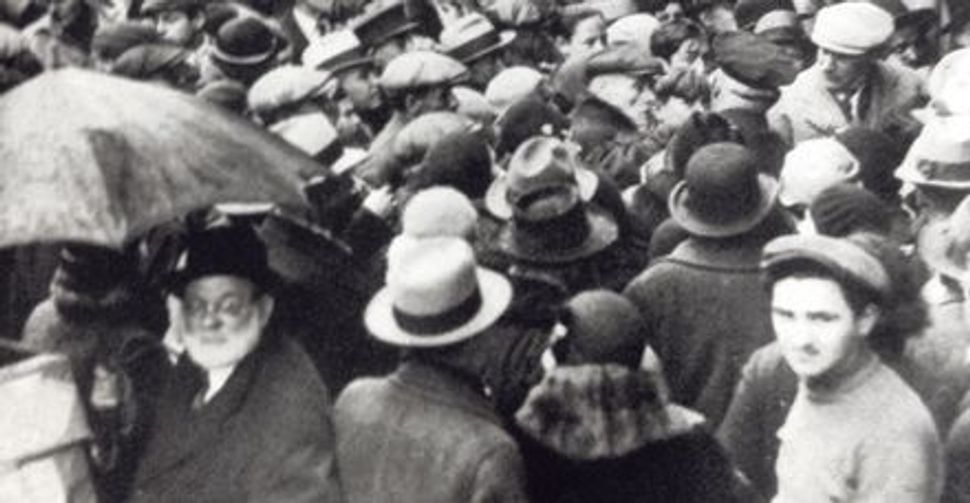This is the Forward’s coverage of the Yiddish language historically spoken by Ashkenazi Jews in Europe and still spoken by many Hasidic Jews today.
For more stories on Yiddishkeit, see Yiddish World, and for stories written in Yiddish,…
This is the Forward’s coverage of the Yiddish language historically spoken by Ashkenazi Jews in Europe and still spoken by many Hasidic Jews today.
For more stories on Yiddishkeit, see Yiddish World, and for stories written in Yiddish,…

The first time Anthony Russell heard Sidor Belarsky (1898-1975), on the soundtrack for the Coen brothers film “A Serious Man,” he thought it was Paul Robeson singing in Yiddish. Russell, an African-American classically trained operatic bass, wasn’t yet familiar with work of the Ukrainian-American opera singer and conservator of Jewish music, but he was drawn…

The National Yiddish Theatre-Folksbiene has announced that it will be creating a new, bi-annual international festival of Jewish performing arts, the New York Times reports. “Kulturfest,” which will also be named after Yiddish preservationist and anthologist Chana Mlotek, will begin in 2015, to coincide with the Folksbiene’s 100th anniversary. It will be officially presented at…

Herb Hoffman writes: “When as a child I needed a haircut — desperately, according to my mother — she would say, ‘Azoy a shmenge oyf den kopp, a mameshe choprene.’ This always seemed to me more Polish or German than Yiddish. She herself came from Lvov and knew all three languages. What is the derivation?”…
100 Years Ago in the Forward After Big Jack Zelig, a gangster from Manhattan’s Lower East Side, survived a recent shooting in a gang war between the Jewish gang headed by “Kid Twist” and the Italian gang led by Jack Sirocco, he took the stand to testify against his assailants. In the wake of the…

A crowd will gather in downtown Toronto on June 7 for the 2012 Helen and Stan Vine Canadian Jewish Book Awards. One of the winners will be Rebecca Margolis, an associate professor in the Vered Jewish Canadian Studies Program at the University of Ottawa, who will be honored for “Jewish Roots, Canadian Soil” (McGill-Queen’s University…

Murray Lefkowitz of Merion Station, Pa., writes a letter stating his opinion that it “may have been an unfortunate choice” that Hebrew became the language of the state of Israel, since “Yiddish was the more common tongue for almost all Jews prior to 1948.” The claim that Yiddish, not Hebrew, was the real national language…

Each Friday, a beat-up truck comes trundling down our Jerusalem block to collect used household items. “Alte zakhn! Alte zakhn!” the loudspeaker rings out. Then comes a list of items of interest: couches, chairs, tables, beds. All these are announced in Hebrew. Only that initial call, “Alte zakhn!” — literally, “old things” — is in…
100 Years Ago in the Forward A Bronx courtroom exploded when Netty Pavlovitch jumped over the barrier and attacked the defendant in the case, 58 year-old Joseph Capischi, who is on trial for seducing a 14 year-old Jewish girl: Pavlovitch’s daughter, Stella. Pavlovitch had to be restrained by a number of police officers, who barely…








100% of profits support our journalism